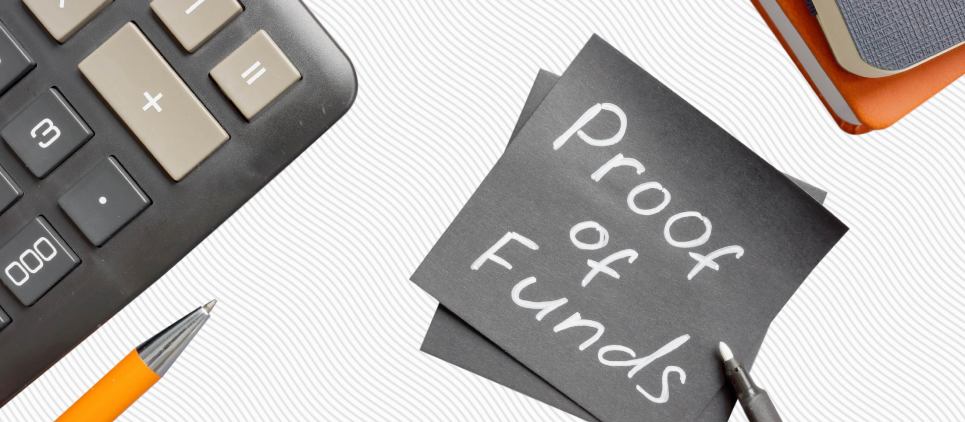10 Ways tenants can show proof of income and why it’s important
As a landlord, it’s essential to make proof of income a requirement for any prospective tenant applying to move into your rental. It will help you verify that the prospect has a steady source of income, which in turn means they’re more likely to pay rent in full and on time.
How can you verify an applicant’s income? Pay stubs are the most common proof of income document, but there are plenty of other documents a prospective tenant can provide—and you may want to ask for more than one.

Table of contents
Why is proof of income important?10 forms of proof of incomeFollowing up on proof of incomeWhy is proof of income important?
Proof of income is essential to any tenant background check. In short, proof of income shows that a prospective renter has a steady income and will therefore be able to make monthly rent payments on time. It’s in a landlord’s best interest to choose a tenant who is likely to make rent payments in full and on time, as that helps you be able to pay mortgage payments and other property costs without delay.
Conventional wisdom suggests that a renter should budget approximately 30 percent of their income for rent, though that figure may be higher in locales with high costs of living (such as New York City or San Francisco).
While it is the renter’s responsibility to determine whether the rental property is within their budget, you can also make your own determination about whether the prospective tenant is likely to be able to comfortably afford the monthly rent on your property. Start by evaluating their proof of income documents and ascertaining whether or not their monthly income is three times the monthly rent on the property.
10 forms of proof of income
One of the best indicators of a tenant’s ability to afford monthly payments is a steady income, which you can verify using a variety of documents. These are ten types of documents you can ask applicants to provide as proof of income. Pro-tip: Ask for at least two forms of proof of income documents, especially from applicants who are self-employed.
1. Pay stubs
A pay stub, which most people who work corporate jobs receive at the end of each pay period, is the most common form of proof of income. But keep in mind, pay stubs won’t tell the full picture for those who are paid commission or paid hourly with an inconsistent schedule.
Be sure to ask for the applicant’s most recent pay stubs, so you can verify that they are still at that job and receiving that income, and confirm their monthly earnings. Ask for multiple pay stubs to cover the period of time of at least a full month because there are typically two pay periods in a month.
2. Bank statements
This is a record of an applicant’s deposits, withdrawals, and bank balance. This is a good option for applicants who are not employed, are self-employed, and/or who don’t receive regular pay stubs. If you ask for a few months of bank statements, you should be able to get a good view of whether an applicant has a steady enough income to meet your requirements.
3. Tax returns
An applicant can offer up their most recent tax returns to show their unearned income as well as income history. However, a tax return will only show you information from the previous calendar year—not the applicant’s current income.
4. W2 form
The W2 tax form is a document that the government uses to verify income, and will show an overview of an applicant’s income from the previous tax year. However, like a tax return, a W2 form may not show the applicant’s most up-to-date income information.
5. 1099 form
The 1099 form is an income form for miscellaneous income, which means it’s likely the income form a self-employed or freelancer applicant will provide. A self-employed or freelance worker may have multiple 1099 forms from a given year, and the income reported in a previous year may not match the applicant’s current or expected future income.
6. Employer letter
An applicant can ask their employer to write them a letter verifying their income and their tenure at the company. Applicants can also provide a copy of their offer letter, which summarizes their position and salary. You may also learn more about your tenant from an employer letter, as it can double as a reference. You’ll want to verify an employer letter, though, as it can be easily forged.
7. Unemployment documentation
If a prospective tenant isn’t currently working but is receiving unemployment benefits from the government, they should have documentation detailing how much they are collecting in unemployment to show that they have income on a regular schedule.
8. Disability insurance
If an applicant is currently earning worker’s compensation, they may provide their award letter from the insurance company or court to prove their income. These payments will typically have an end date to them, so you may want to ask for additional documentation to verify an applicant’s source of income after the worker’s compensation ends.
9. Pension distribution statement
Retired applicants who are receiving monthly pension payments can provide their pension statement (the 1099-R form on their tax return) for income verification, which will show their monthly pension distribution.
10. Court-ordered payments
If an applicant is receiving regular court-ordered payments (for example, alimony or child support), they can provide documentation of those payments—typically in the form of the award letter from the court—as their proof of income.

Following up on proof of income
Your job doesn’t end once you’ve asked the applicant to show proof of income. It’s important to follow up and independently confirm that they receive the compensation they reported. Questions to confirm:
Does the prospective tenant still hold the job they offered you proof of?
Do they still receive that income?
You’ll need to verify that the documents and information they’ve provided are current. If an applicant doesn’t meet the income standards you’ve set but you still want to rent to them, you can ask them to find a lease cosigner—which will give both the landlord and tenant an extra layer of security.
In addition, proof of income is only one piece of the evaluation puzzle when it comes to selecting a tenant for your rental property. Background checks are another piece and one that will provide a fuller picture of the renter’s background and history.
Once you’ve collected all of this information and perhaps also interviewed the prospective tenant, you should have all the information you need to make an informed decision about who to rent your property to.
Bungalow offers tenant placement and property management services that keep your property fully occupied and well managed—helping you earn more rental income from your investment property. With Bungalow, homeowners earn up to 20% more rental income. Learn more about Bungalow.
Ready to find your next home?
Move-in ready homes and a built-in community so you can feel at home, together — wherever you are.
Suggested articles



